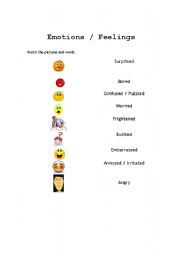
|
Emotions/Feelings worksheets
Two worksheets about emotions/feelings for strong elementary and up. First is just matching the picture with the emotion. The next page has a list of scenarios, and Ss must write the emotion that the person is feeling. You can finish by getting Ss to role play the scenarios if you like. The flashcards that go with the worksheet can be found her...
Level: elementary
Age: 9-17
Type: worksheet
Downloads: 4
|
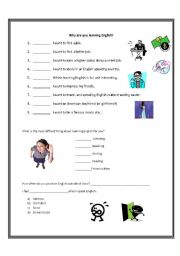
|
Why are you learning English? worksheet
A worksheet you can use as a warmer or in a first class. Asks questions about why students want to learn English. It can be used as a jumping point for discussion.
Level: elementary
Age: 14-17
Type: worksheet
Downloads: 11
|
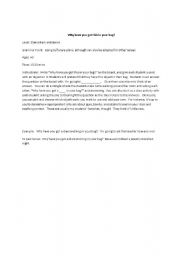
|
"Going to" Activity - Why have you got...
A fun activity for elementary and above, pretty much all ages. It involves getting students to discuss future plans as they must describe what they are going to do with the object on their cards. They answer the question: "Why have you got a ___ in your bag?" -- Because I�m going to... It can be adapted for other tenses as well. It�s really fun...
Level: elementary
Age: 8-17
Type: activity-card
Downloads: 3
|
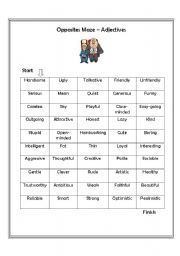
|
Opposite Adjectives Maze
The goal is to get through the maze in 10 moves. You can do it as a team race if you like. The students move through the maze by finding the opposite pairs. They can move horizontally, vertically, or diagonally. It�s really for pre-int or above, or a strong elementary class. Enjoy.
Level: elementary
Age: 9-17
Type: worksheet
Downloads: 9
|

|
Emotions/Feelings Flashcards
Large flashcards for: frightened, excited, surprised, angry, puzzled/confused, worried, bored, annoyed, embarrassed
Matching exercise here: http://www.eslprintables.com/printable.asp?id=407110#thetop
Level: elementary
Age: 7-17
Type: flash-card
Downloads: 110
|
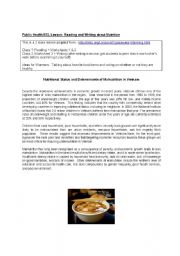
|
Malnutrition - Lesson for reading and writing - intermediate +
This exercise would ideally take place over 2 classes. The first one more focused on reading and the second more on writing. I designed it for my coworkers doing public health research, which explains why it might be a little dry/scientific sounding and also explains the downer of a topic. (Malnutrition, yay!) Anyway, it�s good for academic writing...
Level: intermediate
Age: 14-17
Type: lesson-plan
Downloads: 24
|
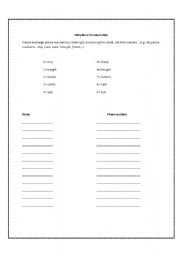
|
Telephone Pronunciation
A pronunciation and listening exercise to help students distinguish between similar sounds. Can be used for teenagers and adults (and maybe even older kids), all levels. First, practice pronouncing the words, then get the students to write down a phone number you�ve made up - you communicate the number through the words, not the numbers. Then ge...
Level: elementary
Age: 12-17
Type: activity-card
Downloads: 2
|
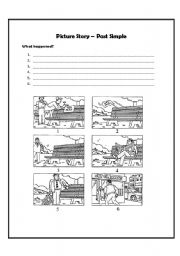
|
Past simple picture story
Students write sentences to describe what is going on in the pictures. Written for past simple, but can be adapted for other tenses.
Level: elementary
Age: 12-17
Type: worksheet
Downloads: 140
|
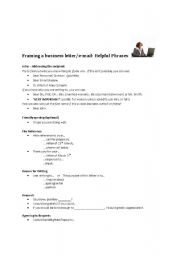
|
Business Letter/Email Writing
This lesson is intended to help students learn how to phrase professional business letters or emails. It starts with a handout listing helpful phrases to use. Then 3 exercises follow practicing: professional phrasing, linking phrases, and writing a letter requesting a hotel reservation.
Level: intermediate
Age: 14-17
Type: worksheet
Downloads: 36
|
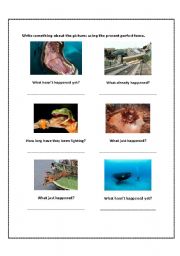
|
Present Perfect - Describe pictures
A worksheet where students must answer questions in the present perfect to describe the interesting pictures.
Level: elementary
Age: 8-17
Type: worksheet
Downloads: 10
|